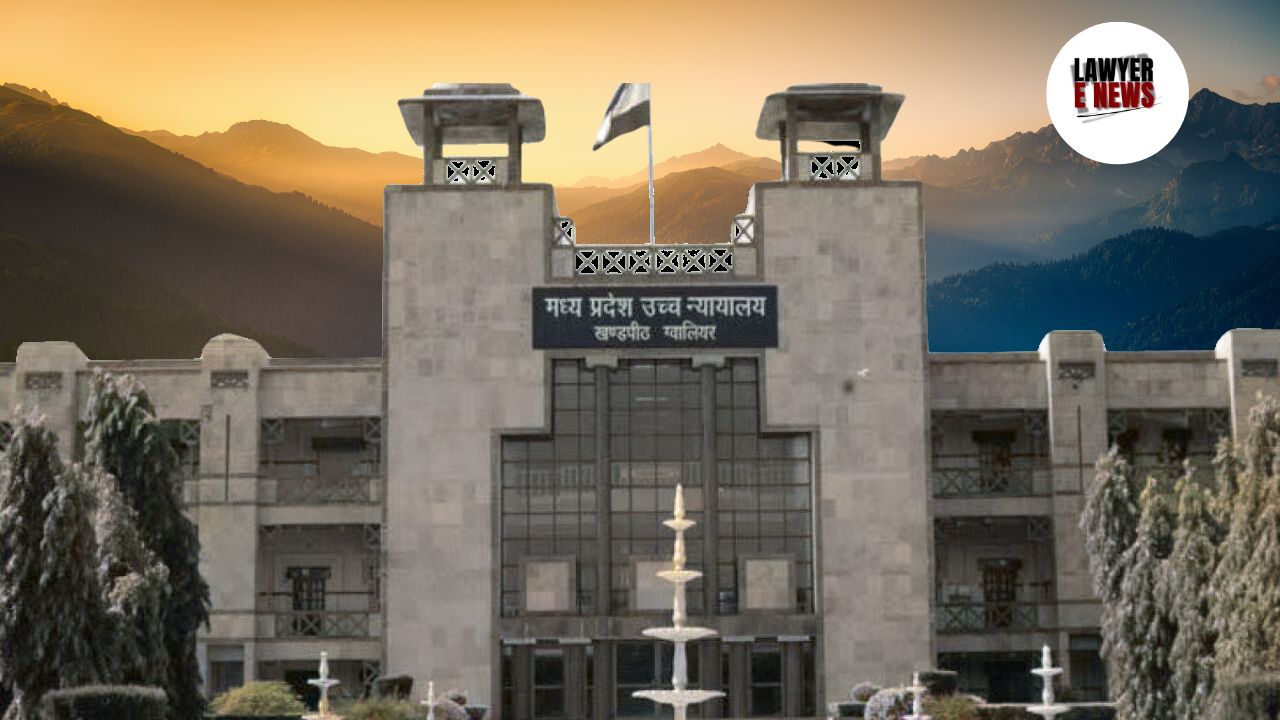-
by Admin
15 February 2026 2:36 AM



"The Sessions Court Lacked Jurisdiction to Register and Decide MJC Prior to Committal of the Case" - Madhya Pradesh High Court held that the Sessions Court acted without jurisdiction by adding the applicants as accused during the pendency of a bail application before the case was committed. The court quashed the impugned order and clarified important procedural aspects regarding jurisdiction in criminal cases.
"Proceedings Initiated Without Jurisdiction Remain Void"
In this significant ruling, Justice Sanjay Dwivedi emphasized that the power under Section 319 of the Code of Criminal Procedure (Cr.P.C.), which allows a court to add accused persons, can only be exercised after the case has been committed to the Sessions Court. The court held that any proceedings initiated without jurisdiction, even if jurisdiction is later acquired, are void and unsustainable. The trial court's error in registering and deciding the MJC (Miscellaneous Judicial Case) while considering a bail application before the case's committal invalidated the entire proceeding.
The criminal revision arose from a Sessions Court's order, which added the applicants, Raju Rajput and another, to the array of accused in a case involving charges under Sections 294, 506, 307, 147, and 148 of the Indian Penal Code (IPC) and Sections 25 and 27 of the Arms Act. The core issue was whether the Sessions Court had the authority to take cognizance and add the applicants as accused during the pendency of a bail application, before the case was committed to the court.
During the bail hearing for other accused individuals, the complainant filed an application alleging that the police had colluded with the applicants by not naming them as accused, despite sufficient material in the case diary. The Sessions Court, without waiting for the case's committal, registered an MJC based on the complainant's application and later added the applicants as accused after the case was formally committed to the Sessions Court.
The primary legal issue was whether the Sessions Court had the jurisdiction to entertain and decide the MJC and add the applicants as accused during the pendency of the bail application, before the case was committed. The key statutes involved were:
Section 193 of Cr.P.C.: This section mandates that a Sessions Court cannot take cognizance of an offense unless the case has been committed to it by a Magistrate.
Section 319 of Cr.P.C.: This provision empowers a court to add any person as an accused during the trial if sufficient evidence against them emerges.
The applicants contended that the Sessions Court's actions were premature and without jurisdiction, as the case had not yet been committed when the MJC was registered and considered. They argued that the proceedings initiated at that stage were void and could not be cured by subsequent committal.
"Jurisdictional Error Cannot Be Cured Retrospectively"
The High Court, agreeing with the applicants, held that the Sessions Court's action of registering and deciding the MJC before the case was committed was outside its jurisdiction. Justice Dwivedi observed:
"The cognizance under Section 193 of Cr.P.C. can only be taken by the Sessions Court after the case is committed. Any action taken before the case is committed is without jurisdiction and void."
The court emphasized that even though the case was eventually committed and the Sessions Court acquired jurisdiction, the proceedings initiated without jurisdiction could not be validated retrospectively. The High Court noted that the proper course for the Sessions Court would have been to dismiss the complainant's application as premature, rather than taking cognizance and proceeding with the MJC.
"A Void Proceeding Cannot Be Validated by Subsequent Acquisition of Jurisdiction"
In its ruling, the High Court clarified that proceedings initiated without jurisdiction remain invalid, even if the court later acquires jurisdiction. This principle was reinforced with references to previous Supreme Court judgments, including Hardeep Singh vs. State of Punjab (2014) 3 SCC 92 and Dharam Pal vs. State of Haryana (2004) 13 SCC 9, which delineate the procedural boundaries for taking cognizance and adding accused persons.
The High Court allowed the criminal revision and set aside the impugned order dated January 10, 2022, which had added the applicants as accused. The court reaffirmed the importance of following procedural law strictly and ruled that the Sessions Court's actions before the case's committal were without jurisdiction and, therefore, invalid.
Date of Decision: October 18, 2024
